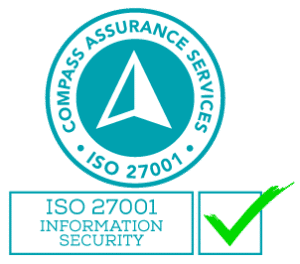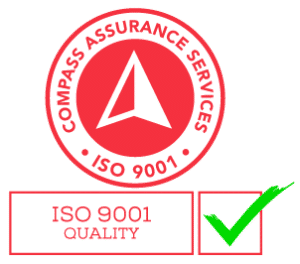Small to mid-sized accounting firms are under pressure to manage large amounts of data, meet compliance requirements, and all while delivering timely and accurate client results. Many firms have made the move to hybrid or remote working arrangements, and digital-first client communication has changed how accountants operate day-to-day.
Some accounting firms are finding that their internal systems can’t keep pace. Relying solely on in-house teams often leads to reactive IT management, stretched resources, and unnecessary downtime.
A managed IT services model offers a better way forward. These services can deliver consistent technical support, security services, and cloud management tailored to the specific needs of modern accounting practices.
How Do Modern Accounting Firms Use Technology?
Digital tools are now central to business operations in the accounting world. Systems handle everything from client records to payroll, tax filing, and analytics. Keeping these platforms running smoothly is central to client trust and firm performance.
Day-to-Day Practices:
Cloud-first tools are now the norm: Accounting software has moved into cloud-based ecosystems. Teams need stable internet connections, secure login processes, and dependable system performance to access data from anywhere, at any time.
Advanced tools support smarter decision-making: Data analytics and AI-assisted reporting are helping firms offer deeper insights and more strategic advice. These tools depend on reliable infrastructure and up-to-date systems to function effectively.
Collaboration is no longer tied to the office: Staff and clients expect to share documents, review figures, and hold meetings from wherever they are. Remote access and file-sharing tools must be both secure and seamless.
What This Means for IT:
To support this shift, firms now require:
- 24/7 system uptime to avoid service disruptions.
- Secure data storage that complies with industry and data privacy standards.
- Consistent software updates to protect against threats and maintain compatibility.
Without the right IT support in place, these tools can quickly become points of failure rather than productivity.
Common IT Pressure Points Accountants Deal With
Accounting firms depend heavily on technology, yet many still struggle with systems that are unreliable, outdated, or under-supported. These issues create a great deal of inconvenience: they impact service delivery, compliance, and profitability.
Frequent IT Challenges Include:
Unplanned downtime: Systems going offline during BAS or EOFY can delay lodgements and damage client confidence. Without proactive monitoring, these disruptions are hard to predict and prevent.
Limited internal resources: In-house teams often wear multiple hats, juggling tech support with other responsibilities. This leads to reactive support rather than a planned, strategic IT setup.
Weak data protection strategies: Backups may not be tested regularly, and disaster recovery plans are often missing or incomplete. This leaves firms vulnerable to data loss and prolonged recovery times.
Cyber security threats: Accounting firms hold very sensitive data: financial records, client details, bank information. This data is extremely valuable to cybercriminals, and firms without dedicated security services risk data breaches.
Compliance risk: Meeting Australian data compliance regulations requires more than secure systems. Firms must show they’re actively protecting data and responding to risks in real time.
How Managed IT Services Solve These Challenges
Partnering with a managed IT service provider shifts IT from a reactive burden to connected, secure systems. These services allow accounting firms to work smarter, keep data protected, and provide reliable services to their clients.
Key Managed IT Services for Accountants:
Proactive monitoring and maintenance: Issues are identified and resolved before they cause downtime. This proactive approach keeps systems running efficiently and reduces the risk of costly outages.
Expert technical support on demand: Instead of relying solely on in-house teams, firms get access to skilled technicians who understand the tools and platforms accountants use every day.
Stronger security services: Firewalls, endpoint protection, patching, and threat detection are all handled as part of a structured security strategy, reducing the likelihood of breaches and compliance failures.
Reliable backup and disaster recovery: Automated, off-site data backup ensures files are secure and recoverable so business continuity is never in doubt, even in the face of hardware failure or cyber incidents.
Cost efficiency and predictable budgeting: Managed services run on a fixed monthly model, helping firms avoid unexpected IT expenses. This cost-effective solution supports better financial planning.
Support for cloud management and remote work: Teams can access data and tools securely from anywhere, improving flexibility and productivity across the business.
Alignment with core business objectives: A managed services model supports growth, streamlines business operations, and frees partners to focus on what they do best: serving clients and growing the firm.
Learn more: Microsoft Copilot in Accounting: How Can AI Be Used in Finance?
Further Benefits of Managed IT Services for Accountants
Managed IT services offer more than just technical support; they help accounting firms stay relevant, compliant, and client-focused. A structured services model improves how firms plan, operate, and grow, making it easier to meet both client and regulatory expectations.
Support for Strategic Decision-Making
Access to accurate, real-time data is essential for advising clients and managing firm operations. Managed service providers (MSPs) ensure your systems support this by maintaining performance, stability, and data access across your platforms.
- Regular system audits keep infrastructure aligned with business goals.
- Up-to-date software helps firms stay compliant and efficient.
- Centralised dashboards simplify reporting and planning.
Improved Vendor Management
Juggling multiple technology vendors—software providers, internet services, hardware suppliers—can drain time and resources. A managed IT partner handles these relationships on your behalf.
- One point of contact for all IT-related issues.
- Better service level agreement outcomes through coordinated support.
- Reduced time spent chasing updates or troubleshooting third-party tools.
Better Focus on Day-to-Day Tasks
Time spent fixing tech issues or worrying about data security is time taken away from client work. Managed services remove those distractions, allowing accountants to focus on delivering value.
- Greater team productivity.
- Fewer internal disruptions.
- Clearer focus on firm-wide strategic goals.
Long-Term Scalability
Growth in client numbers, staff, or service offerings places new demands on your IT environment. Managed IT services allow accounting firms to scale confidently without overinvesting in hardware or internal staffing.
- Infrastructure can expand without major upfront investment.
- Services adapt as your firm’s needs change.
- Future planning becomes easier with expert guidance.
Next Steps: Support Your Firm with the Right Technology
In a profession built on trust, timing, and accuracy, your IT systems need to be reliable and secure. Managed IT services offer a cost-effective way to achieve this—without the need to expand your in-house team or manage multiple vendors.
If you’re considering how managed IT services could support your accounting firm’s growth and security, we’re here to help. At Steadfast Solutions, we work with accountants across Australia to deliver tailored IT support that reduces stress, increases efficiency, and keeps your systems running smoothly all year round.
Learn more about our managed IT services for accountants and see how we can help your firm stay secure and focused.




